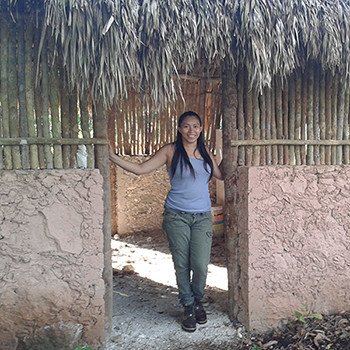
I am a Botanist and an indigenous woman from the Yucatecan Maya ethnia. My lifelong passion for studying largely stems from my background; I come from an economically disadvantaged family. Thus, being able to finance my studies proved a relentless challenge. My pursuit of strong grades, my continual interest to study, and economic limitations were all factors which motivated me to apply for scholarships, and other financial resources. I am proud to say that all of my academic work, all of my international travel for conferences and research projects, and more have been financed by scholarships which I have tirelessly pursued. I live with my two-year-old son and my husband. Combining my doctoral program career alongside motherhood has been a big challenge, yet I have had the opportunity to learn how to balance and manage my time in an efficient way n order to enjoy both of those important aspects of my life.
My initial research experiences started in the field of the cultivation of plants among indigenous communities. This includes among Mayan communities from which both sides of my family can trace their roots. I immersed in studying the floral biodiversity and sustainability of family gardens in the Maya Region of the Yucatan Peninsula. This made me realize how a healthy ecosystem needs to integrate human and natural systems alike.
My current research interests focus on the study of dry tropical forest ecosystems with goals of developing conservation strategies and to contribute to the sustainable development for such regions. This means not only looking at restoring natural resources, but also restoring and revaluing traditional ecological knowledge from indigenous communities who inhabit these regions. My specific interests focus on: 1) Analyzing sustainable management strategies in order to propose initiatives which conserve natural resources in tropical dry forests; 2) Evaluating the state of conservation and risks of extinction among native plant species, and; 3) The study of natural resource use among indigenous communities, which will thus motivate the restoration and revaluation of traditional knowledge.
